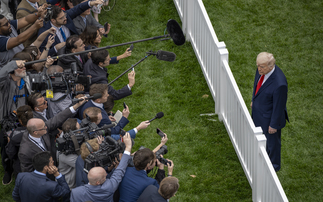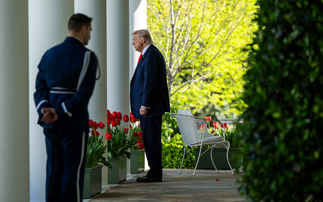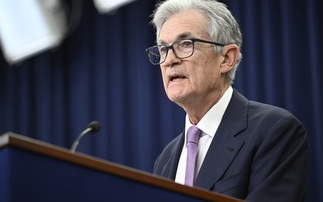In the first of a special three-part Big Question, fund managers give their views on whether President Trump can deliver on his campaign promises, and what this will mean for markets.
Chris Metcalfe, investment director at IBOSS Asset Management
The benefits from infrastructure spend or tax cuts have been reflected in prices, however the potential downsides have not.
Trade wars, walls between countries, tariffs, threatening the 'One China' policy, calling countries currency manipulators, shouting his mouth off to anybody and about anything whenever he feels like it and dictating to companies where they will build their factories does not come without payback.
The backdrop to this brave new world is a US stock market at an all-time high and a populace that Trump has not yet had the opportunity to let down. The queue of sycophantic CEOs falling over themselves to pay homage via the world's media to Trump is growing daily, as is the feeling of nausea.
We can barely remember the last time somebody in business criticised his policies, tweets or threats. It is difficult to remember pre-election investment experts calling a 15% drop in the S&P and the start of anti-globalisation fallout for the free world.
In the coming weeks there will be actual losers to contend with, not just a mass of theoretical winners, and things will look a little bit different.
Peter Westaway, chief economist at Vanguard
Staying diversified
Looking at the US, it is important to disentangle the longer-term trends from the role more expansionary fiscal policy may play in the short term.
Over the next decade, US growth should be around 2% due to a waning contribution from secular trends such as slowing population and productivity growth, and less credit-fuelled spending.
More immediately, tax cuts and infrastructure spending could boost short-term growth but there is still much uncertainty around the politics of getting it agreed, the impact of the measures proposed and the fact that the US is already nearing full capacity, so we could instead see rising inflation and faster increases in interest rates.
Investors may be tempted to speculate, but 2016 was a compelling example of the market's continued ability to surprise.
Instead, investors are likely to be best served focusing on staying diversified, minimising costs, and keeping in mind their long-term goals.
David Lafferty, chief market strategist at Natixis Global Asset Management
Markets got carried away
Initially yes, markets had become too bullish on Trump where the jump in yields, inflation expectations, and the US dollar all looked unsustainable. However, in recent weeks, the market has come to take a more measured view of Trump's proposals.
Creating legislation is never as easy as it seems, even with both houses of congress under Republican control. Hopes of a massive infrastructure spending program has sent material and industrial companies rocketing, but fiscal hawks will seek to limit the budget implications of this.
The administration's hope for public/private partnerships further complicates matters. It is also becoming clear that Trumponomics cannot simply fix the major supply-side constraints facing the US and global economy including poor demographics, high debt levels, and low productivity.
If Trump can tone down the anti-trade rhetoric, his platform of spending, lower tax rates, and deregulation should bolster growth.
But the market got ahead of itself in the initial weeks post-election and now appears to be suggesting a more realistic view.
Click here to read part two for more fund manager views













